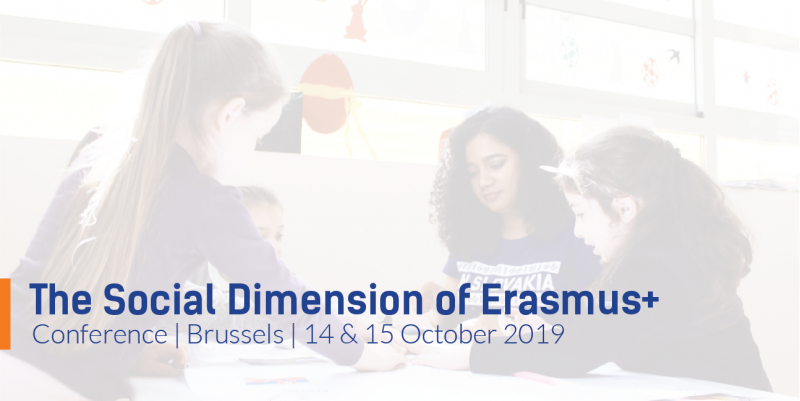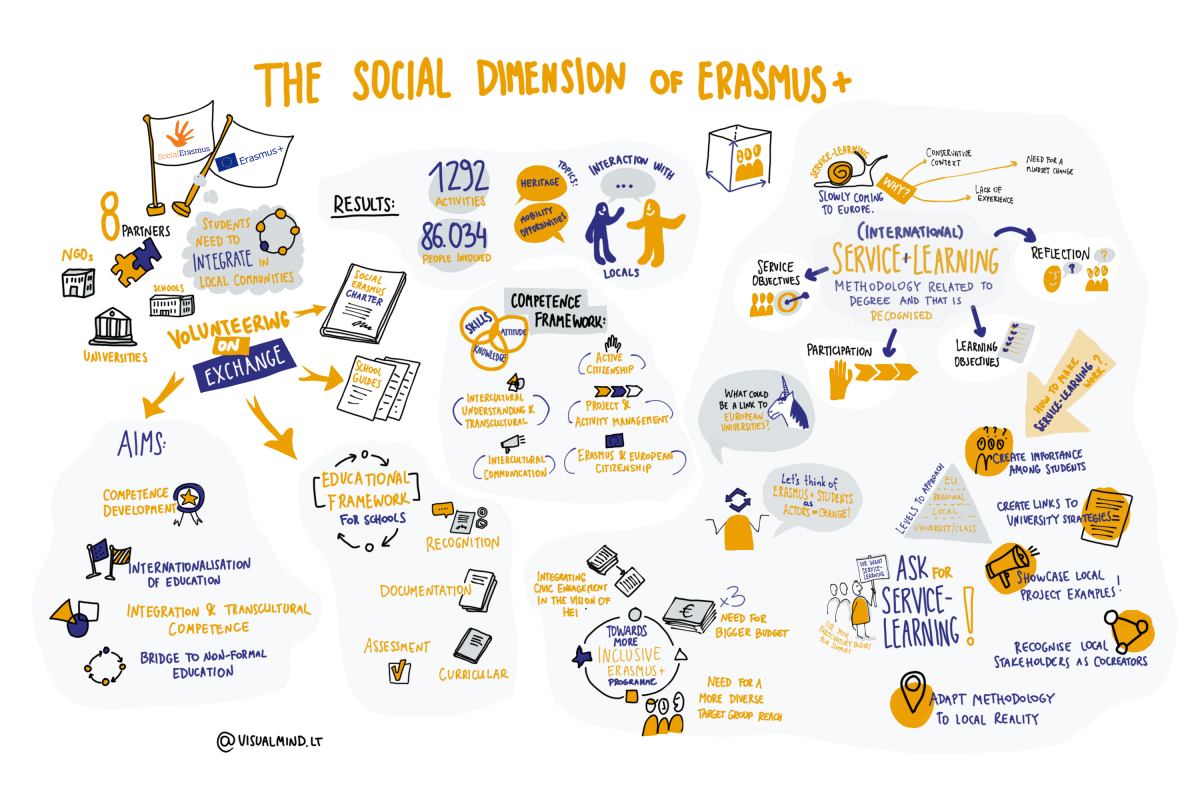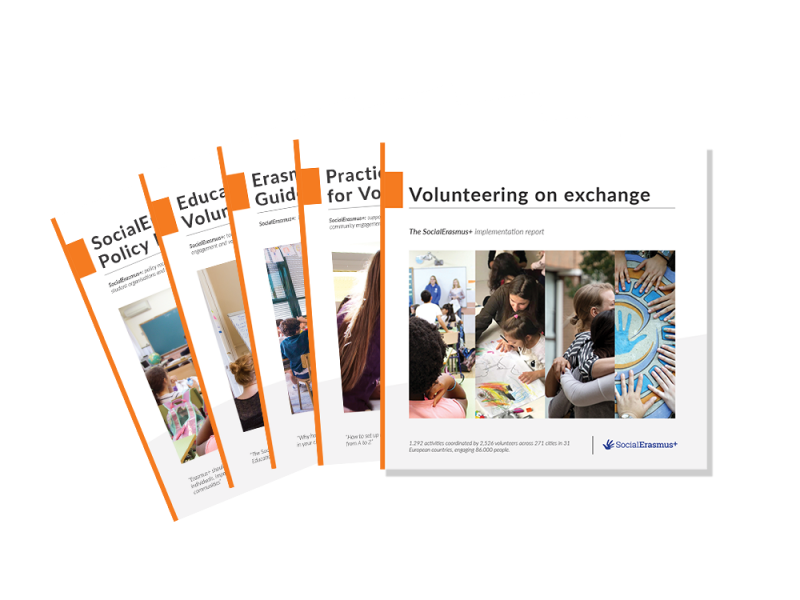Social engagement through volunteering on exchange.
International conference on 14 & 15 October 2019 in Brussels, Belgium

The 'Social Dimension of Erasmus+' conference addressed how the Erasmus+ programme encourages a more connected and inclusive society through initiatives that promote social engagement and volunteering on exchange. The international conference took place on 14-15 October 2019 in Brussels at the Vrije Universiteit Brussel and welcomed professionals working in the field of Education and Youth, including International Relations Officers, policymakers in education and youth, National Agencies and Ministries, school teachers and students, and youth representatives interested in how student mobility programmes can have a lasting impact on local communities.
The conference was organised within the SocialErasmus+, an Erasmus+ KA3 Forward-Looking Cooperation project, coordinated by the Erasmus Student Network, that aims at building bridges between international students and local communities by bringing the students to local schools. The project consortium includes the European University Foundation (EUF), Youth for Exchange and Understanding (YEU), Vrije Universiteit Brussel (VUB), Universität Wien, Universidad de Vigo, Scholengroep Vlaamse Ardennen and ESN Besançon.
The topics addressed during the conference were the following:
The implementation phase of the project took place during the academic year of 2018-2019. During this period more than 1.292 SocialErasmus activities were organised by ESN and its partner organisations, where more than 18.574 international students international exchange students engaged with more than 64.934 members of their local communities through volunteering activities. All of this was coordinated by a team of 2.526 local youth leaders of the Erasmus Student Network. A total of 86.034 people engaged in intercultural dialogue across 271 different cities across 31 countries in Europe.

More about the project implementation results can be found in the “Volunteering on exchange” report.
One of the goals of the SocialErasmus+ project was to develop and professionalise the implementation process of social engagement activities, therefore a set of documents were made to support the Higher Education Institutions and student organisations including the “Practical Guidelines for Volunteer Activities”, “Educational Framework for Volunteering on Exchange”, “Erasmus in Schools Guide” and “SocialErasmus Charter and Policy Recommendations”, all of which can be found in the “SocialErasmus+: Volunteering on exchange Toolkit”
Next to the SocialErasmus+ project impact report and the launch of the publications, the conference featured a panel discussion about the importance of social engagement initiatives in international education, moderated by Valentin Dupouey Sterdyniak from Euractiv, and having as speakers: Kostis Giannidis, President of Erasmus Student Network, Oana Dumitrescu, Head of Higher Education Unit - European Commission, Maria Isabel Doval, Vice-Rector of Universidad de Vigo and Pilar Aramburuzabala, President of the European Association of Service-Learning in HEI.
The Erasmus+ programme aims to develop a young generation of Europeans with a better understanding of citizens with a different background. A generation of Europeans whose identity goes beyond the traditional cultural divisions. To make sure this happens, the Erasmus experience must reach further than the individual student exchange, impacting local communities. Therefore, during the conference we focused on the social impact of universities and their internationalisation strategies on their local communities, internationalisation of education in primary and secondary sections, lessons from the higher education sector, the recognition of social engagement initiatives in higher education, bringing non-formal education methods into education, and intercultural learning and competence development of students as global citizens.
Helping and contributing to the agenda were Onorina Botezat (UCDC) about the Vir-teach project and María Ballesteros Melero (OBESSU) speaking about their project “Inclusive Schools”, Elisa Triani (Nuestra Señora de La Paz) speaking about “Euroscola”, and Khaola Al Rifai (VUB) presenting the “Inclusion of Refugee Programme”. Moreover, the participants had the chance to learn about the Social Education at the Masaryk University from František Trapl; Europe Meets School from Robert Gieske; GamifyEU from Tamara Gojkovic, Youth for Exchange and Understanding; and about the Time to Move campaign from Safi Sabuni, Eurodesk.
Before the conference, the third Social Inclusion Leaders Meeting took place in Brussels, between the 11th and 13th October. The event gathered over 60 student representatives and volunteers who advocate for social inclusion and outreach to the local community, both within their local communities and national context. The event was organised with the help and collaboration of two local ESN organisations based in Brussels; ESN VUB EhB Brussels and ESN Saint-Louis Brussels.
Graphical facilitation for the event was made by VISUALMIND.LT. For pictures visit here.
One of the major outcomes of the Conference is the launch of the SocialErasmus+ publications. You can find them in the toolkit. 
